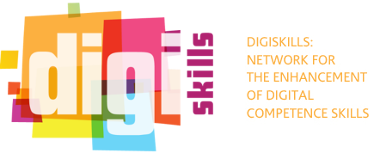Social media: A guide for researchers

| Rate | |||
| Criteria Evaluation | |||
transferable adaptability innovative acceptability impact effectiveness availability creativity collaborative
The good teaching practice at a glance
social
Any
Higher Education
This guide will show you how you can use social media to help your research and your career. Social media have big implications for how researchers (and people in general) communicate and collaborate. Researchers have much to gain from engaging with social media in various aspects of their work. This guide will provide you with information to make an informed decision about using social media and enable you to select wisely from the vast range of tools that are available.
Medium
Detailed description
It aims to provide the information needed to make an informed decision about using social media and select from the vast range of tools that are available.
2 hours
Social media is an important technological trend that has big implications for how researchers (and people in general) communicate and collaborate. Researchers have a huge amount to gain from engaging with social media in various aspects of their work. The guide discusses the use of social media for research and academic purposes and will not be examining the many other uses that social media is put to across society.
Social media can change the way in which you undertake research, and can also open up new forms of communication and dissemination. It has the power to enable researchers to engage in a wide range of dissemination in a highly efficient way.
Web materials 1: Links and resources
Audio and video tools
Blogging and Microblogging tools
Examples of academic and research blogs
Social networking services
Location based tools
Social bookmarking, news and social citation tools
Research and writing collaboration tools
Presentation sharing tools
Project management, meeting and collaboration tools
Information management tools
Virtual worlds
You can access the full list of the above resources here, or download below.
Web materials 2: Researcher case studies
The guide is rooted in the practical experience of its authors and that of the ten social media users that we interviewed as part of the project. You can read their individual case studies below:
- Andrew Coverdale (PhD student, Education)
- Anna Croft (Lecturer, Organic Chemistry)
- Alexander Davenport (Research Assistant, Hemato-oncology)
- Elena Golovuskina (PhD student, Education)
- Pat Heslop (Professor, Molecular Cytogenetics and Cell biology)
- Chris Jobling (Lecturer, Engineering)
- Constantina Katsari (Lecturer, Ancient History)
- Cameron Neylon (Senior Scientist, Biophysics)
- Alun Salt (Archaeoastronomist)
- Ruth Filery Travis (PhD, Archaeology)
- Terry Wassall (Principal Teaching Fellow, Sociology)
You can download the guide below, as well as documents listing Web materials 1 and 2. To request hard copies of the guide, email contact@rin.ac.uk
| Country of origin | United Kingdom |
| Language of the practice | |
| Website related | Communicating and disseminating research |
| Status of the practice | Final |
| Download full practice desciprion |
- ICT enabled learning - Using digital resources for face-to-face classroom practice & for online learning/blended classroom practice
About the author
| Name of contributor | Alan Cann, Konstantia Dimitriou and Tristram Hooley |
| Affiliation of contributor | RIN project |
| Institution where this practice was implemented | University of Leicester, International Centre for Guidance Studies |
| Contact e-mail | contact@rin.ac.uk |
- Log in to post comments


